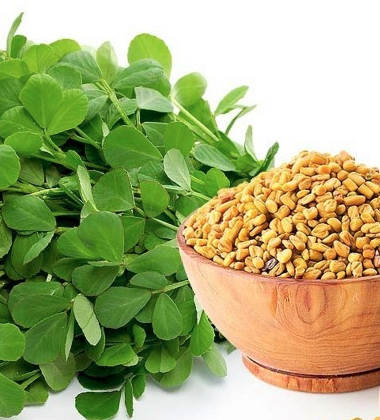Fitness enthusiasts are talking about fenugreek after a June, 2020 study found that fenugreek increased strength, lean muscle mass, endurance, body composition, functional threshold power, and sex hormones in 8-weeks. As an East-Indian I can tell you fenugreek is not “new” – in fact it is an ancient spice (with ties to India, Egypt, China, Africa, & Greece) getting a new spotlight.
I have seen health-conscious people in India water-soak it overnight and swallow it raw the next morning boasting a general set of health benefits, which includes strength, endurance, and increased sexual desire. The placebo-controlled, double-blind study followed 138 men over 8-weeks and analyzed that the fenugreek groups improved muscle size & strength while reducing fat. It also showed increase of sexual hormones. Other studies have shown promise for fenugreek to be used by men and women for establishing hormonal balance post-menopause or andropause (male menopause), or effective control of type 2 diabetes.
I use fenugreek seeds and leaves for cooking. It has a sweet, nutty, and slightly bitter flavor, and is very aromatic. My knowledge of fenugreek seeds was piqued after the birth of my daughter, when my elder female relatives told me it would increase breast milk production. In fact a 2005 study and a 2011 study confirm that fenugreek does effect breast milk production, and may improve colic symptoms in nursing babies.
Some ways to incorporate fenugreek seeds or leaves are:
- Lactation herbal tea
- Garam Masala – a powered collection of super spices to add to all your meals
- Methi Dal – an Indian dal stew
- Methi Paneer – Paneer curry with leaves of spinach and fenugreek
- Sprouted fenugreek salad
- Methi Thepla – Gujarati roti (flour tortilla) with both powdered seeds and leaves. I make mine gluten-free.
You can purchase your fenugreek from local Indian stores in your city, or order online.



